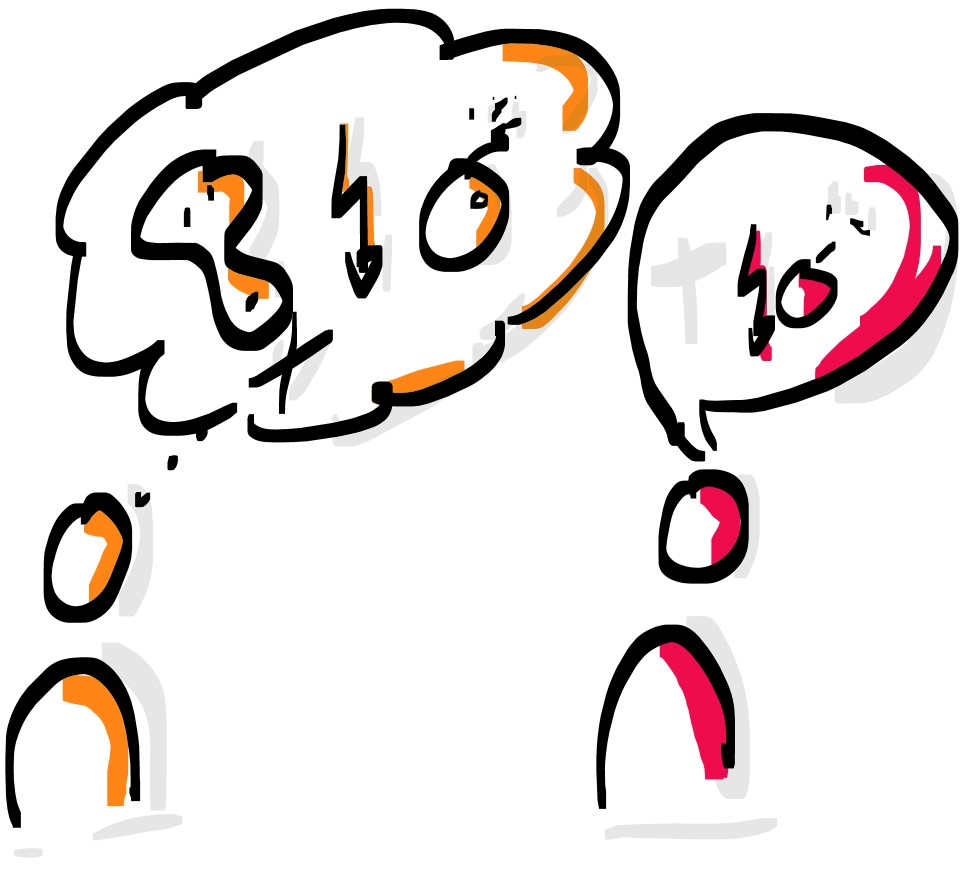It is a problem if conflicts are not resolved or not resolved well. Especially if we are supposed to be productive. In other words: Always. Time to take care of it and learn how to argue properly.

Always and everywhere we have to deal with it. Nevertheless, in conflicts we often treat ourselves and others badly: skillfully and persistently we turn a blind eye on problems, we talk around issues knowingly and in a variety of ways, talk up decisions, dictate what has to be done or use other coercive methods to impose our will. And if all this fails to have an effect? We will find someone to blame.
After all, we often feel uncomfortable with it, which does not stop us from understanding and accepting it as a common and normal form of conflict resolution. However, it doesn’t change the fact that they don’t contribute anything essential to a solution, certainly not a good one. In fact, they promote unpleasant developments that cause our intuitively unpleasant feeling and that, in the end, hinder good quality and value creation.
How Conflicts Happen
Contrary to popular conviction, conflicts are NOT general, objective factual issues that are contentious and therefore hotly and energetically debated. If this were the case, we would calmly and openly exchange arguments in order to weigh them together and then decide. But this is precisely what we are not capable of doing in conflictual situations, see above. So what is going on here?
Apart from the factual issue that needs to be resolved, conflict arises when at least one person has an emotional issue that has nothing to do with the matter in discussion.
For her/him, it is about the question of what is relevant and right to do in the current situation from her/his point of view. People always relate this question (initially) to themselves: What is important for ME in general and in the current situation? Psychologically, importance is an emotional category that people evaluate by recalling their personal, unique, highly individual experiences, beliefs, intuitions and especially their needs and values. All these things are stored as (unconscious) emotional patterns. They are – at least in the first place – non-negotiable. And: People are biologically programmed to defend their needs and values if they see them threatened.
This is why conflicts usually have little to do with the apparently controversial issue on which they ignite
For example, when a specialist expert who wants to be seen as an authority (needs, values) basically considers objections and questions to be an attack on his expert status. The question is only a trigger for a conflict that depends on the personal feelings of the individual and, at the first moment, can only be located there.

The individually felt threat also explains why we often get into stress in arguments. This archaic, automatic and therefore hardly controllable psycho-biological pattern. In important or long-lasting conflict situations, stress causes us to have persistent tunnel vision and often activates inappropriately aggressive either-or action patterns (“It’s him or me!”): We are then convinced that we must either prevail at all costs or accept (total) defeat. We then no longer see any other possibilities. Even though they exist, of course.
They depend on whether we (want to or can) orient ourselves to our own interests or needs or to those of the conflict partners:
1. Enforcing
- Attitude: “My interests are more important than others and have priority”.
- Aim/outcome: Enforce own maximum demands.
2. Giving in
- Attitude: “My own interests are not important, those of others take precedence.”
- Aim/result: To give in to the maximum demand of the conflict partner.
3. Avoiding
- Attitude: “Neither my own interests nor the interests of others are important and should be taken into account.”
- Aim/result: Consciously, unconsciously, actively or passively, conflict is ignored or even negated, confrontations are avoided.
4. Compromising
- Attitude: “It is important that my interests and those of others are at least partially taken into account.”
- Aim/result: Both conflict partners move away from maximum demands and approach each other for the solution.
5. Win-Win
- Attitude: “My interests and those of others are equally important and should be met to the maximum extent possible.”
- Aim/result: Both maximum demands are fulfilled as nearly as possible.
Depending on the situation and intention, all these strategies can be justified and lead to success. So there is nothing wrong with asserting oneself or giving in. However, only as long as they are not the only strategies available. Because: If people, organisations or entire cultures become entrenched in individual patterns, they become inflexible. They can no longer react appropriately to changing conditions, unexpected or unknown situations. They no longer see alternative good or possibly urgently needed solutions.
Managing yourself or others essentially means: Deciding. In other words, choosing an option from several possibilities. This is always associated with conflicts, because alternatives are assessed, evaluated and weighed up.
 Therefore
Therefore
If you want to manage yourself and your organisation successfully in the long term, always ensure that you have great personal and organisational flexibility. You will succeed best by ensuring a good culture of conflict that fits your short-, medium- and long-term goals and those of your organisation.
To do this, all you really have to do is be mindful to yourself and your colleagues and outsmart automatic mechanisms:
Always ask yourself and others, at least in decisive situations, what really is important and essential at this very moment. So there is nothing wrong with asserting oneself or giving in. However, only as long as they are not the only strategies available. Because: If people, organisations or entire cultures become entrenched in individual patterns, they become inflexible. They can no longer react appropriately to changing conditions, unexpected or unknown situations. They no longer see alternative good or possibly urgently needed solutions.
Managing yourself or others essentially means: Deciding. In other words, choosing an option from several possibilities. This is always associated with conflicts because alternatives are assessed, evaluated, and weighed up.
This article was first published on www.teamworkblog.de on 29 August 2016.
 Apart from the factual issue that needs to be resolved, conflict arises when at least one person has an emotional issue that has nothing to do with the matter in discussion.
Apart from the factual issue that needs to be resolved, conflict arises when at least one person has an emotional issue that has nothing to do with the matter in discussion. Therefore
Therefore